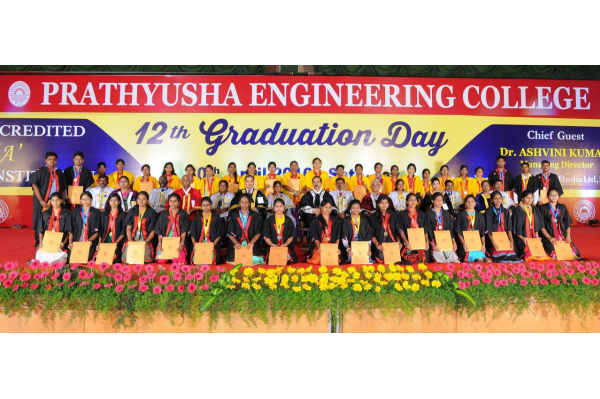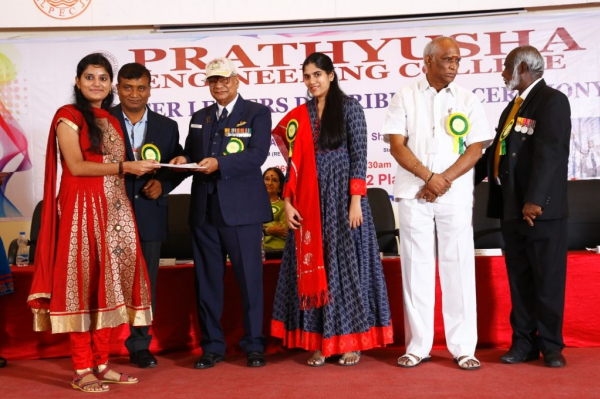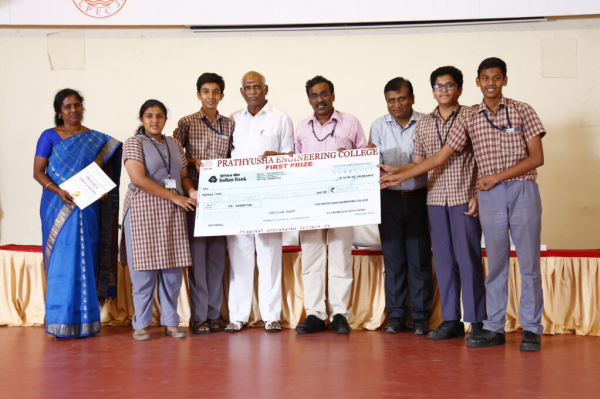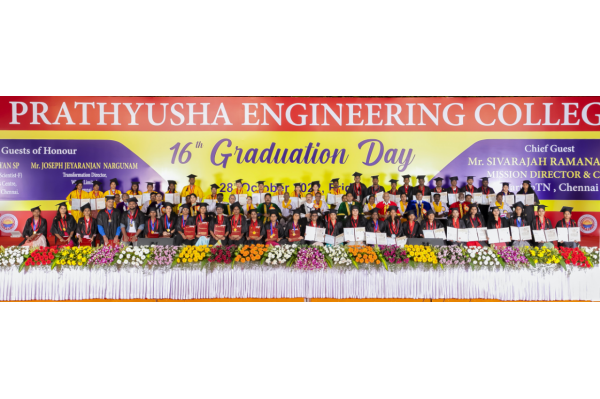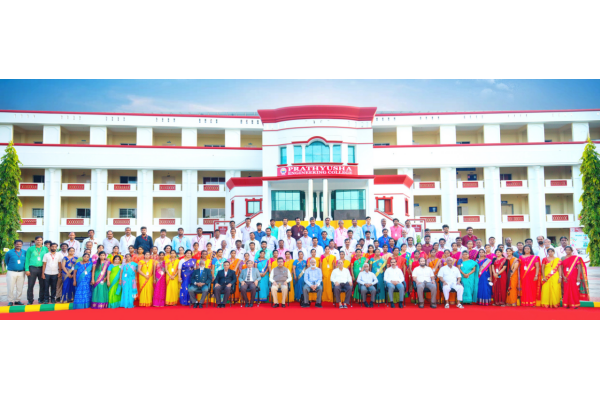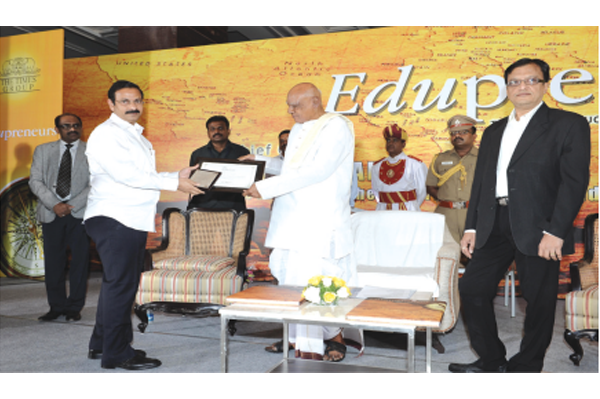PO, PEO, PSO
Programme Outcomes (POs)
Engineering Students will be able to be:
- Engineering Knowledge: Apply the knowledge of Mathematics, Science, Engineering fundamentals, and an engineering specialization to the solution of complex engineering problems.
- Problem analysis: Identify, formulate, review research literature, and analyze complex Engineering problems reaching substantiated conclusions using first principles of mathematics, natural sciences, and Engineering sciences.
- Design/development of solutions: Design solutions for complex Engineering problems and design system components or processes that meet the specified needs with appropriate consideration for the public health and safety, and the cultural, societal, and environmental considerations.
- Conduct investigations of complex problems: Use research based knowledge and research methods including design of experiments, analysis and interpretation of data, and synthesis of the information to provide valid conclusions.
- Modern tool usage: Create, select, and apply appropriate techniques, resources, and modern engineering and IT tools including prediction and modeling to complex Engineering activities with an understanding of the limitations.
- The Engineer and society: Apply reasoning informed by the contextual knowledge to assess societal, health, safety, legal and cultural issues and the consequent responsibilities relevant to the professional Engineering practice.
- Environment and sustainability: Understand the impact of the professional Engineering solutions in societal and environmental contexts, and demonstrate the knowledge of, and the need for sustainable developments.
- Ethics: Apply ethical principles and commit to professional ethics and responsibilities and norms of the Engineering practice.
- Individual and team work: Function effectively as an individual, and as a member or leader in diverse teams, and in multidisciplinary settings.
- Communication: Communicate effectively on complex Engineering activities with the Engineering Community and with society at large, such as, being able to comprehend and write effective reports and design documentation, make effective presentations, and give and receive clear instructions.
- Project management and finance: Demonstrate knowledge and understanding of the Engineering and management principles and apply these to one’s own work, as a member and leader in a team, to manage projects and in multi-disciplinary environments.
- Life -long learning: Recognize the need for, and have the preparation and ability to engage in independent and life- long learning in the broadest context of technological change.
Programme Educational Objectives (PEOs)
PEO-1: To equip and enhance the proficiency of Graduates and thus encourage them to utilize the fundamental knowledge of basic sciences, mathematics, Artificial Intelligence, Data Science and Statics to build systems that require management and analysis of large volume of data.
PEO-2: To invite the graduates with required technical skills to enable them pursue pioneering research in the field of Artificial Intelligence and Data Science and thus create disruptive and sustainable solutions for the welfare of Eco System.
PEO-3: To inspire the graduates to think logically and help them to pursue lifelong learning and collaborate with an ethical attitude in a multi-disciplinary team.
Programme Specific Objectives (PSO’s)
PSO1: Graduates would be able to evolve Artificial Intelligence based efficient domain specific process for effective and purposeful decision making in various domains including business and governments.
PSO2: Graduates should be able to solve business and engineering problems with foresight and insight from available data within the resources.
PSO3: The application of theoretical knowledge of Artificial Intelligence and data analysis packed with industrial tools and techniques should be able to help the graduates to solve the day-to-day problems emerging out of the social evils.









